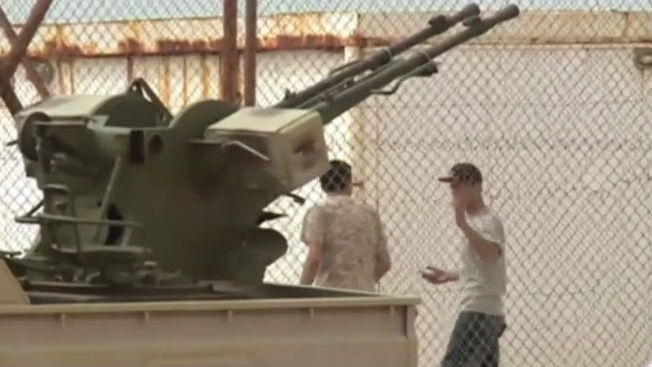[Updated] Troops Withdraw from Libya's Oil Ports

Libya's Tripoli-based government, which leads one of two warring factions, has ordered its forces to withdraw from bases near major oil ports to fight Islamic State militants in the central city of Sirte, a Tripoli lawmaker said on Saturday.
The withdrawal may at some point result in the re-opening of ports of Es Sider and Ras Lanuf, both of which closed in December as both sides battled for their control.
Militants loyal to Islamic State have expanded in Libya, exploiting the security vacuum left by fighting between different parties since an uprising toppled Muammar Gaddafi in 2011.
"The withdrawal of (the) forces is a tactical withdrawal to confront the organization of the Islamic State ... in Sirte," Belqasem Debbrez, deputy head of the defense committee in the Tripoli-based assembly, told Reuters.
Tankers loading
A tanker bound for Italy was loading 600,000 barrels of oil at the Libyan port of Hariga on Sunday, an oil official said, the eighth loading at the eastern terminal this month as exports continue despite fights between armed factions.
Another tanker, also bound for Italy, lifted 130,000 barrels of oil on Wednesday at the Zueitina port, which is also located in the east of the OPEC member country, a second oil official said.
Rising exports from the ports of Hariga and Zueitina offer some hope for Libya's oil sector, which has been battered by Islamist militant attacks and fighting between rival factions.
Zueitina port does not expect any new tankers in the next few days, one of the oil officials said, adding that bad weather would make docking impossible.
A number of major oilfields have stopped working due to the struggle between the recognized government in the east and a rival administration that took control of the capital Tripoli in August 2014.
Even so, Libya's oil output has risen to 622,000 barrels per day, a production report by state firm NOC showed on Friday.
Mashallah al-Zwai, the oil minister of the rival government controlling Tripoli, put output at 528,000 bpd, a state news agency said on Sunday.
The emergence of militants aligned with Islamic State have also hit Libya's oil industry. Up to 10 foreign workers are missing after an attack this month on the al-Ghani oilfield by militants loyal to Islamic State.
Militants have also attacked and damaged several oilfields around al-Ghani, forcing the government to declare force majeure, pull out workers and shut down production at 11 oilfields in the central Sirte basin.
A divided nation
Libya is divided into two groups, both of which have their own government, parliament and troops, vying for control of territory and oil facilities. One side operates out of Tripoli, and the other, internationally recognized administration is based in the east.
Earlier this year, militants attacked forces loyal to Tripoli in Sirte, a major central city, and seized government buildings, the university and a radio station.
The presence of Islamic State militants in Libya came to global attention in February when the group beheaded 21 Egyptians Christians, drawing international condemnation.
On Friday, a spokesman for forces loyal to the recognized government had said they had observed the pullout of the rival force from the oil ports.
The forces reporting to the eastern government would stay in their positions, Ali al-Hassi had said.
Copyright Reuters 2015.
